
THE FIRST MEMBER OF the team to unearth human bones at the site of Iglesiachayoq was Félix Huamani, a farmer who lives in the Chicha-Soras Valley of Peru's Ayacucho region. As he dug through the earth beneath a colonial-era church, he revealed a skull whose teeth and lower jaw were covered with a black soot-like substance. Huamani had just discovered what seemed to be the first archaeological evidence of an Andean resistance movement that arose in the aftermath of the Spanish conquest of 1532. Known as the Taki Onqoy, or the "dancing sickness" in the Quechua language, members of this religious and political movement were said by contemporaneous Spanish clerics to have exhumed their dead from beneath churches and reburied them according to Andean customs. The skull that Huamani had unearthed may be both the first physical evidence of such an act of rebellion and an example of how Andean people transformed Spanish burial customs by intertwining them with their own ritual practices.
Esta historia es de la edición September/October 2023 de Archaeology.
Comience su prueba gratuita de Magzter GOLD de 7 días para acceder a miles de historias premium seleccionadas y a más de 9,000 revistas y periódicos.
Ya eres suscriptor ? Conectar
Esta historia es de la edición September/October 2023 de Archaeology.
Comience su prueba gratuita de Magzter GOLD de 7 días para acceder a miles de historias premium seleccionadas y a más de 9,000 revistas y periódicos.
Ya eres suscriptor? Conectar
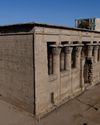
AN EGYPTIAN TEMPLE REBORN
By removing centuries of soot, researchers have uncovered the stunning decoration of a sanctuary dedicated to the heavens
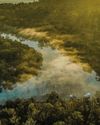
THE SHELL SEEKERS
How hunter-gatherers in northern Florida facing an uncertain future revived a powerful symbol of their past
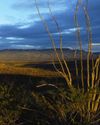
The Secrets of Porvenir
Remembering the victims of a 1918 massacre that shook a Texas border community
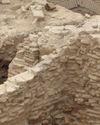
UNEARTHING ANELUSIVE EMPIRE
Archaeologists have discovered rare evidence of an enlightened medieval dynasty that ruled much of Central Asia
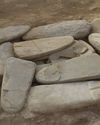
Ahead of Their Time
Excavations reveal the surprising sophistication of Copper Age villagers in southwestern Iran 6,000 years ago
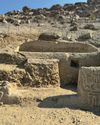
ORIGINS OF PERUVIAN RELIGION
While investigating looters' holes at the site of La Otra Banda in northern Peru's Zaña Valley, archaeologist Luis A. Muro Ynoñán of the Field Museum and the Pontifical Catholic University of Peru spotted carved blocks around seven feet below the surface.
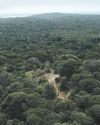
ISLAND OF FREEDOM
Many of the enslaved Africans sent to Brazil beginning in 1549 were from what is now Angola, where one of the most widely spoken languages was Kimbundu.
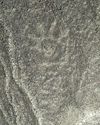
NAZCA GHOST GLYPHS
From the 1940s to the early 2000s, geoglyphs were discovered in the Nazca Desert of southern Peru depicting animals, humans, and other figures at the rate of 1.5 per year.

COLONIAL COMPANIONS
The ancestry of dogs in seventeenth-century Jamestown offers a window into social dynamics between Indigenous people and early colonists.
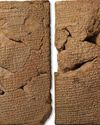
BAD MOON RISING
The British Museum houses around 130,000 clay tablets from ancient Mesopotamia written in cuneiform script between 3200 B.C. and the first century A.D.